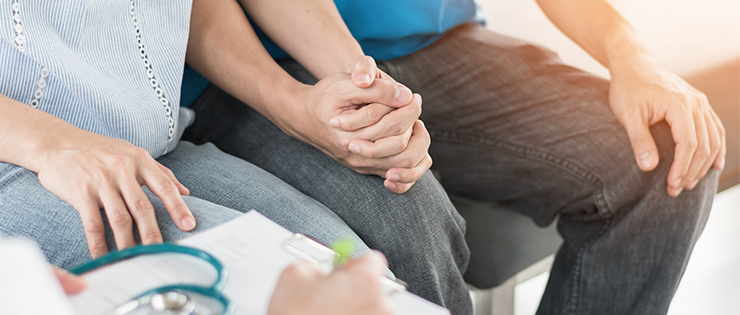
Having children is a big part of a woman’s life and for some, pregnancy and childbirth happen easily. For others though, fertility can be more difficult which can be a challenging problem for the woman and her partner. In an age where medical technology is excellent, it’s almost expected that infertility or having trouble having children should be a thing of the past. However, some people still need extra help.
Fertility is defined as the capacity to conceive and produce children. Most of the time, a woman falls pregnant within the first six menstrual cycles of trying, which we would normally say equates to six months. In the first six months, around 80% of couples conceive and, in a year, 85% will get pregnant. Even if you fall outside of that timeline though, some couples still go on to conceive after that. Within a woman’s menstrual cycle, not every day is likely to result in pregnancy; an egg (ovum) needs to be present and the lining of the uterus (endometrium) needs to be ready to accept a fertilized egg. The fertile period of a cycle usually includes the five days before ovulation and the day of ovulation.
Age is probably the most talked about factor that affects fertility with women often being reminded that they have a biological clock that is ticking. This doesn’t apply to all people, but women in their late 30’s are more fertile than women in their early 20’s. That does not mean that it’s impossible with a large study in the United States showed a 23% increase in the number of women giving birth for the first time over the age of 35. Either naturally or with the use of assisted reproduction, getting pregnant later isn’t off the cards but does need careful consideration when planning a family.
A number of medical conditions that affect women can affect their ability to have children and can include disorders of ovulation, endometriosis, blocked fallopian tubes, pelvic problems or hormonal problems. Other medical conditions such as a blood disorder called antiphospholipid syndrome can also affect fertility and as part of a doctor’s visit to check fertility, a number of these things are checked.
Aside from age and medical problems, some of our lifestyle factors can affect a woman’s chance of falling pregnant. Smoking for example, is a factor that has been strongly linked with trouble conceiving but happily, most of that effect is reversed after a year of quitting. Overweight or obesity may also play a role in fertility, as does being very underweight probably by impacting on ovulation.
And of course, it goes without saying but it takes two to tango when it comes to making babies, and it’s estimated that around 20% of infertility is attributable to male factors, 38% to female factors and 27% to both.
Whatever the reason, for women under the age of 35, its recommended to see a doctor if you haven’t conceived after six months of trying. For those over 35, a doctor visit is warranted after 12 months. Fertility can be a complex issue to tease out and there are many things that need to be carefully considered by a specialist doctor, so if you’re unsure, speak to your GP who can refer you to a fertility specialist if necessary.